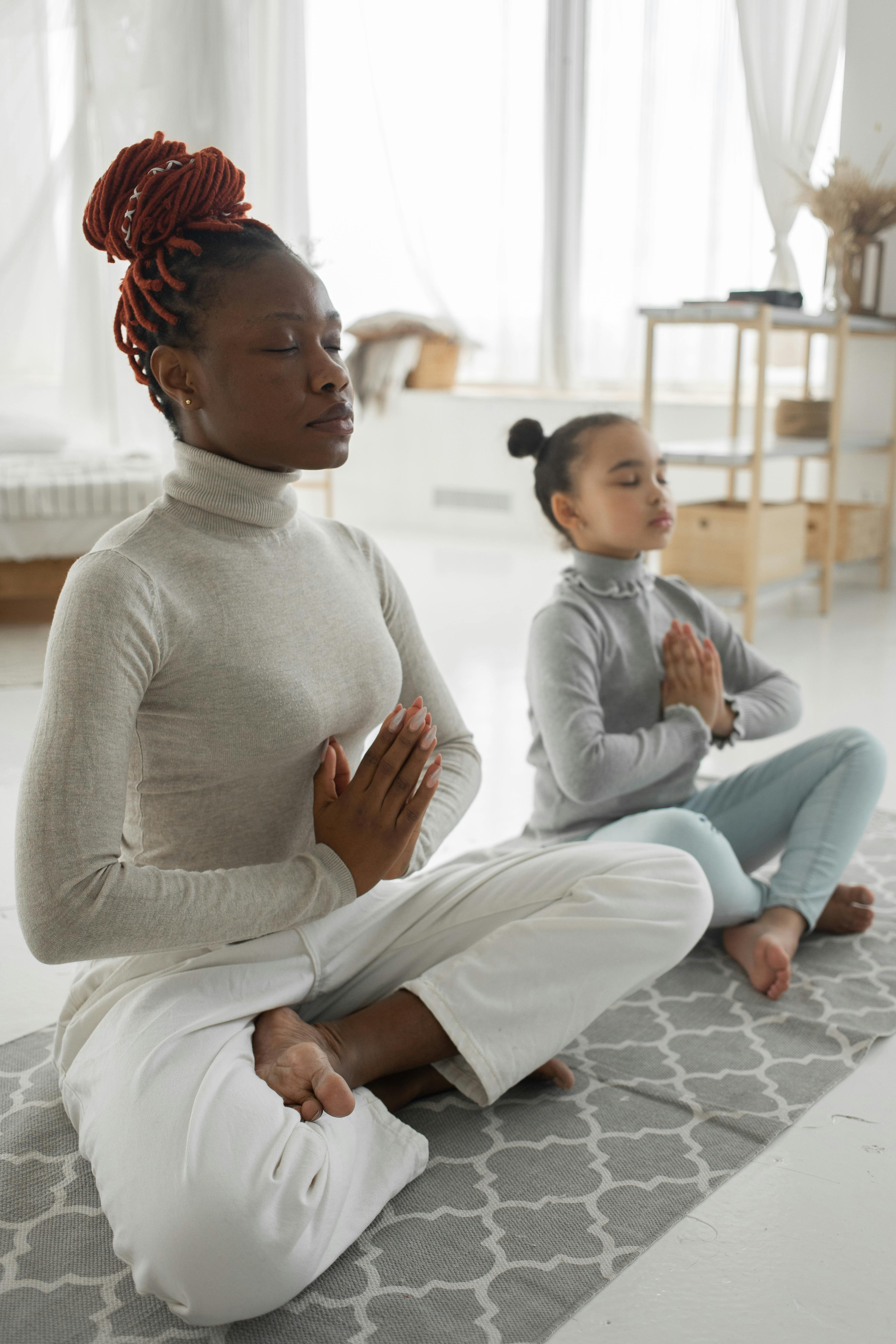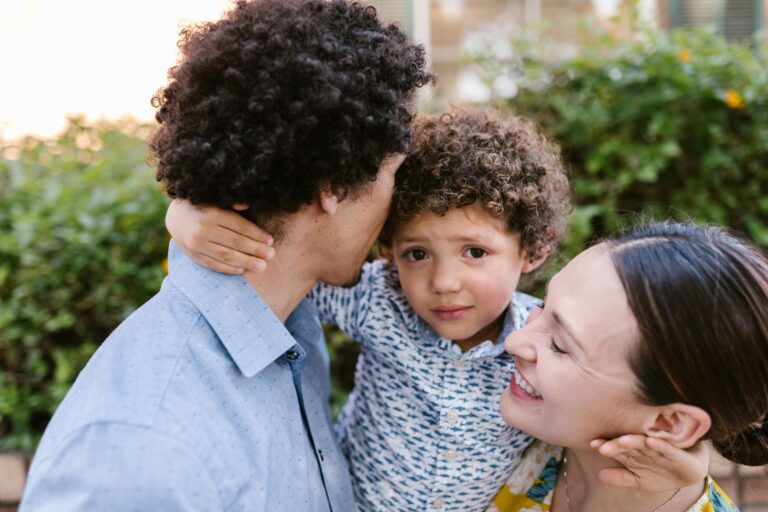How to Stop Yelling at your Kids (It’s Not What You Think)
When kids misbehave, yelling can feel like the natural response.
Yelling can feel like a release, like a justifiable way to correct behavior, or even simply the only way you can get their attention.
The truth is that yelling at your kids is learned behavior and experts have made it clear that it’s damaging to kids and their developing brains.
When kids are scared, they aren’t able to learn or listen.
If actual communication is your goal, you can practice other ways of letting kids know that you aren’t happy with what they are doing.
If the idea of not yelling at your kids when you’re angry feels as easy as climbing Everest, you’re not alone.
Let’s get into how to begin to change this automatic response, one step at a time.

Why Yelling Is Making Things Worse
Yelling, though it might feel like a quick fix, leaves a lasting impact on both the person yelling and the one being yelled at.
Yelling can trigger a stress response in the brain, making logical functions difficult and making emotions go haywire.
When we are scared, stressed, or in emotional pain, it is impossible to listen.
What we want is to be heard, right?
According to NAMI:
“Being frequently yelled at changes the mind, brain and body in a multitude of ways including increasing the activity of the amygdala (the emotional brain), increasing stress hormones in the blood stream, increasing muscular tension and more. Being frequently yelled at as children changes how we think and feel about ourselves even after we become adults and leave home. That’s because the brain wires according to our experiences—we literally hear our parents’ voices yelling at us in our heads even when they’re not there.”
We want to preserve our little ones’ emotional health, sense of self, connection, and self esteem even when we’re mad.
I promise that it’s worth the inner work to begin to yell less.
Related: 15 Simple Ways to Get your Kids to Listen to You
Why We Yell and How to Stop
We yell because we are angry, because we feel disrespected and unheard, because it’s the only way we know how to communicate when we are frustrated.
One of the main reasons we yell at our kids is because we were yelled at and we weren’t taught how to communicate without yelling.
So many of us weren’t taught how to communicate emotions, nor process them.
The good news is that new ways of communicating can be learned and practiced.
Another reason we yell is because we are overwhelmed, overstimulated, and under supported.
Parenting is not easy and there is very little support sometimes.
We all deserve to be supported.
We all need a break sometimes.
If you’re not sure why you yell, you can begin by walking away when you feel yourself getting angry.
You can tell your child that you are feeling mad and don’t want to yell, so you’re going to go to your room for a few minutes and come back.
Believe me, this very action is teaching your child A LOT about how to manage anger.
And you, dear parent, will have the space to breathe and take care of yourself.
Related: 15 Simple Ways to Get your Kids to Listen to You
What You Can Do Instead of Yelling
Okay, so what are you supposed to do when you’re mad if you are trying not to yell?
Well, one of the first things to do is to take yourself out of the situation briefly as I said above.
But, you can’t always do that, right?
Another tactic is to zoom out-like a camera.
Look at the bigger picture and decide if this is a fight worth fighting with your little one, or can you sit this one out?
You don’t have to attend every argument with your little one that they invite you to.
One other thing that really can help is silence, or whispering.
You can feel angry and still say nothing.
There is a small space between what happens and your reaction.
I know you may not think so, but I promise you that there is
And, with time, you can make that space even bigger and find that your initial adrenaline rush will dissipate more quickly than you think.
You are in control and practicing some of these things will help you feel just how much control you have.
Related: 15 Simple Ways to Get your Kids to Listen to You
How to Repair When You Do Yell
First of all, repeat after me: YOU ARE A GOOD PARENT, YOU ARE SAFE, and YOU HAVEN’T RUINED YOUR CHILD.
Say is as many times as you need to.
We ALL lose our tempers sometimes and say or do things we really wish we hadn’t.
The good news is that you can repair and reconnect!
I have definitely lost my temper at times and I’m always amazed that my son STILL comes to me for comfort, even when I’ve just yelled at him.
I’ll say it until I’m blue-your kids really, REALLY just want to connect with you.
You can crouch down and take their little face in your hands and say “I’m so sorry I yelled. I know that was scary/hurt your feelings. Let’s work on this problem together. How can we work together to help you move a little faster in the morning/stop pinching your sister/tell the truth?”
Yes, it’s that easy.
Letting kids know that you are on their side works absolute wonders for the relationship and the child’s willingness to work on problems.
Related: 15 Simple Ways to Get your Kids to Listen to You

If You Need More Help Not Yelling at Your Kids
There’s no shame in needing help.
Let me say that again.
There is no shame in needing help.
We ALL need help sometimes.
If you find yourself yelling more than you’d like to and you want help to figure out how to stop, there is help out there.
If you had a traumatic childhood and find yourself feeling overwhelmed with anger or sadness related to what you went through, there is help.
If you don’t have anyone to talk to about how hard parenting can be, there is help.
You can reach out to a therapist online or in person.
If you’d like to work with me, you can send me a message.
I also highly recommend the book Good Inside by Dr. Becky.
She also has an online program that you can join, if that is easier for you.
She will teach you how to handle all kinds of situations, including how to handle “deeply feeling kids”.
I have one of those.
Maybe you do, too.
We’re all in this together!
